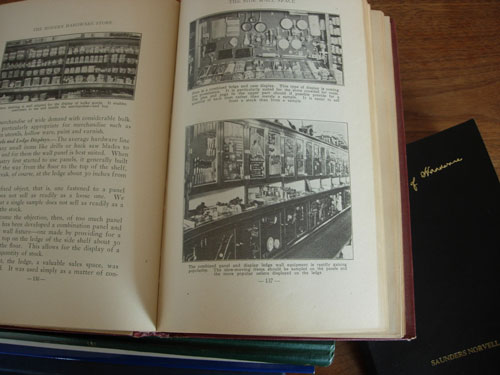| | 02/25/2008 |  A few years ago the NY Times asked a bunch of business writers what are the best books on business. All had Alfred P. Sloan Jr.'s "My Years at General Motors" (1964) on their list so I ran out and got a copy. I love first hand accounts (although in fact the book was ghosted for him by John McDonald and Catharine Stevens) and I learned a lot. It's an incredible read on the management style of General Motors at its peak, a style of management by committee that has largely disappeared. A few years ago the NY Times asked a bunch of business writers what are the best books on business. All had Alfred P. Sloan Jr.'s "My Years at General Motors" (1964) on their list so I ran out and got a copy. I love first hand accounts (although in fact the book was ghosted for him by John McDonald and Catharine Stevens) and I learned a lot. It's an incredible read on the management style of General Motors at its peak, a style of management by committee that has largely disappeared.
I'm pretty clueless as a businessman, my background being in the nuts and bolts of computers and mechanical engineering, so I read a lot of books on sales, marketing, and running a business.
My favorites are first hand accounts and while I do read some modern texts the most interesting ones to me are the old books. Right now I am reading "Forty Years of Hardware" by Saunders Norvell. It's about his career selling Simmons Hardware starting in the 1880's first on the Kansas frontier and then later in Denver, and then onto other adventures. It's a great read, I am learning a little on marketing and sales but also lots about business in the 19th century. A lot less has changed than you might think.
"Memories of a Sheffield Tool Maker" by Ashley Iles was a major guide when I first started. Years later when I finally met Ray, Tony, and Barry Iles it was great to tell them how inspiring I found their father's book. The details and specifics of making tools and running a mail-order business are very different now but on the basic theory of selling and growing a business a lot less has changed than you might think.
"The Modern Hardware Store" by Carl W. Dipman (1929) was interesting but what excited me most of all was all the pictures of hardware stores in the heyday of hand tools.  A lot less has changed than you might think. A lot less has changed than you might think.
Finally, the most unusual of the lot is Daniel Defoe's "Complete English Tradesman Vol 1 and 2". Published in 1745 it's one of the first, if not the first, guides in how to run a store. The author was THE Daniel Defoe of Robinson Crusoe fame who by trade was a milliner (a bad one apparently) and every time he needed money he wrote a book. The book is really interesting with early lessons on double entry accounting and sections on how to treat an apprentice - teach them the trade but make sure that the customers don't get too used to dealing with him so when he leaves his indentures he won't steal your customers. He also mentions that you should teach your wife the business so that if you die she will be able to carry on the business and not have to marry your shop foreman or lose the business or sell it for pennies. A lot less has changed than you might think.
Addenda: Sawmaker Mike Wenzloff just emailed me a link to the Complete English Tradesman on Project Gutenberg so you can read it for yourself. Thank you Mike - Joel | Join the conversation | |
| The opinions expressed in this blog are those of the blog's author and guests and in no way reflect the views of Tools for Working Wood. |
|
 Joel's Blog
Joel's Blog Built-It Blog
Built-It Blog Video Roundup
Video Roundup Classes & Events
Classes & Events Work Magazine
Work Magazine






















 A few years ago the
A few years ago the  A lot less has changed than you might think.
A lot less has changed than you might think.
I have found through the years that most people with an artistic ability lack the necessary interest in actually running a business. Myself included.
While I have studied business management, (informally), I consider myself a horrible businessman. There's just something about using my time running a business, that isn't as personally rewarding as creating things. I often lower my prices just to have the privilege of building a specific piece.
Unfortunately this generally results in the "starving artist" status.
Balancing the two is necessary, but not easy.
Lee